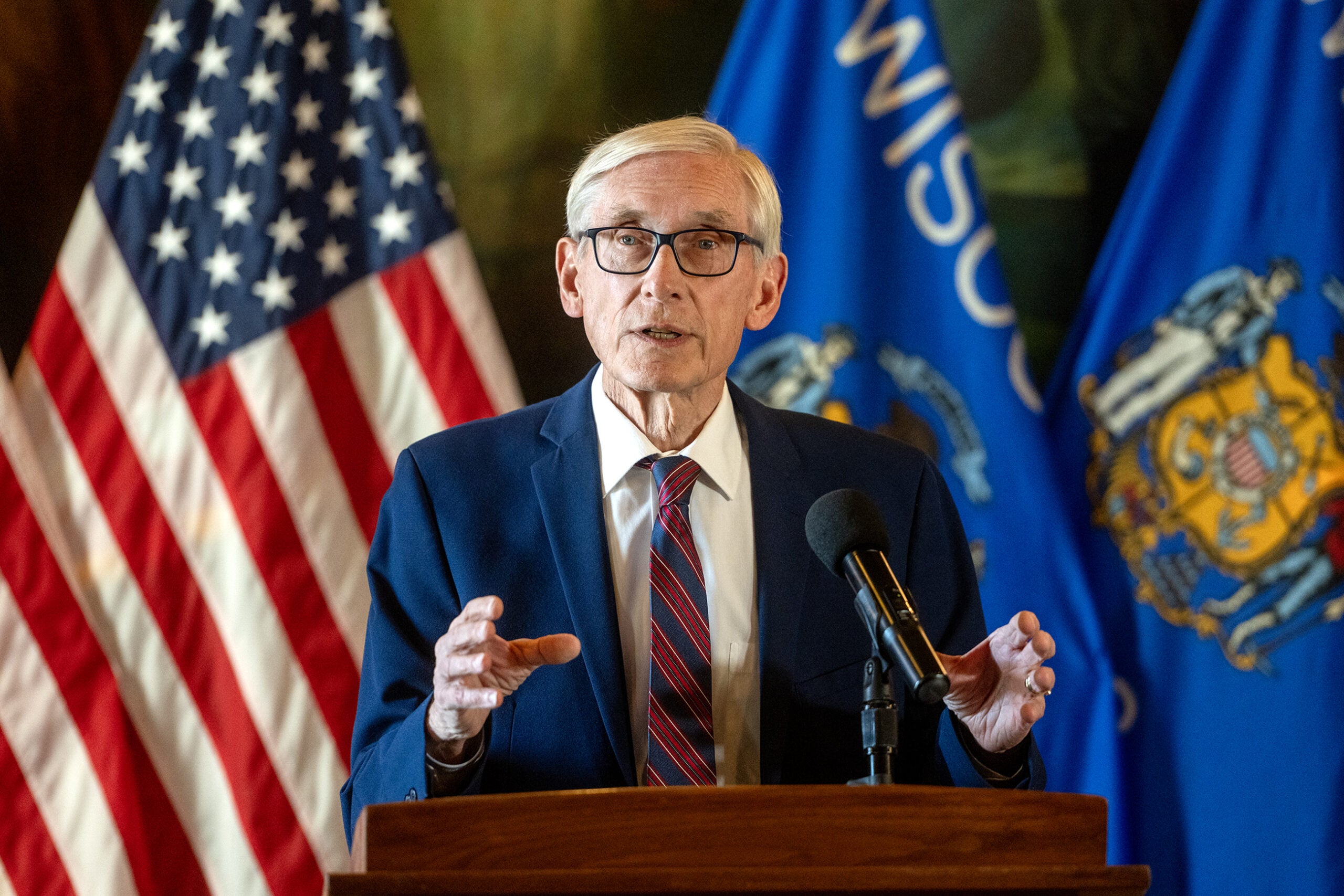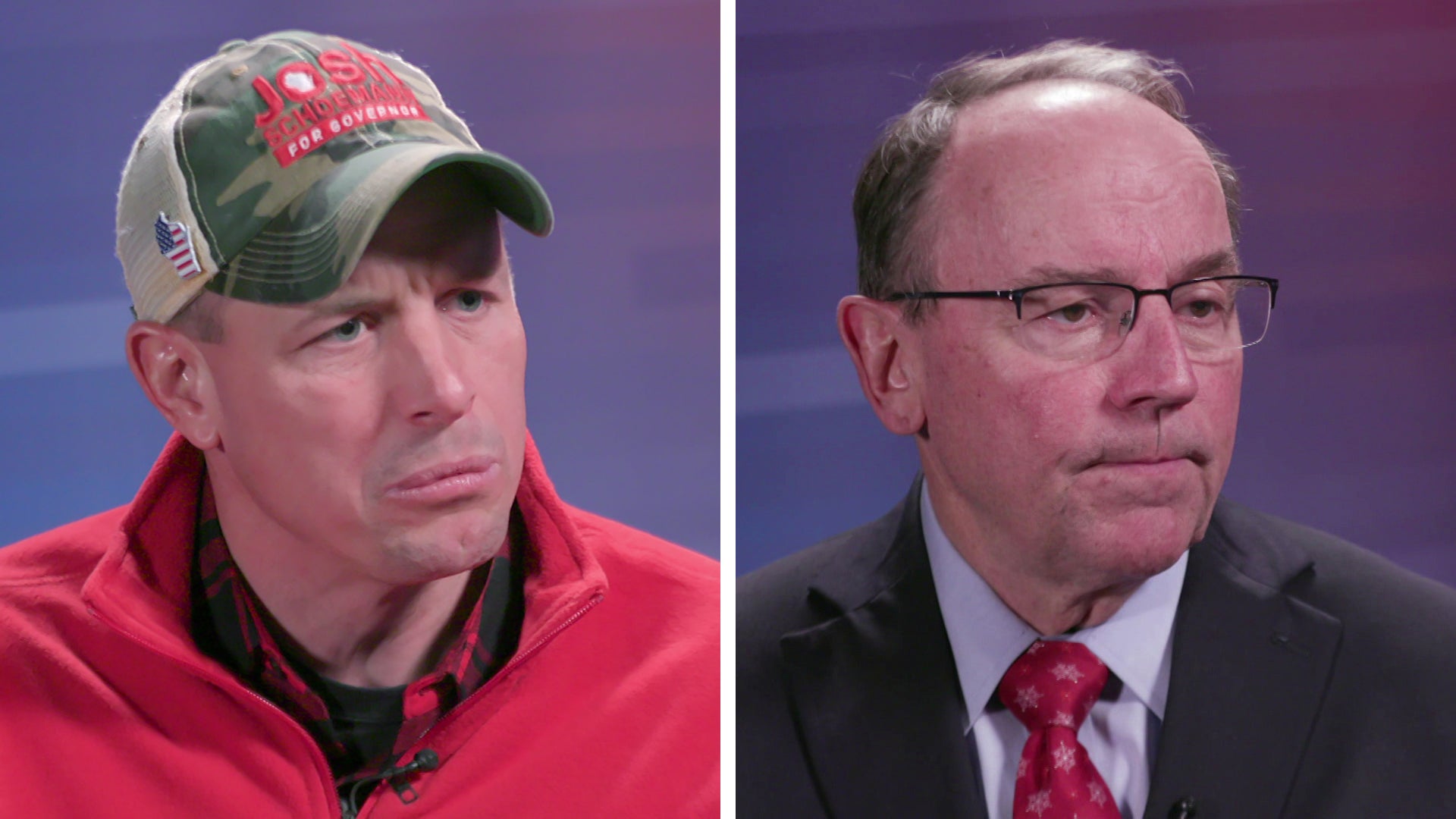Whoever wins the race for governor likely faces an unpleasant reality next year: Wisconsin’s state budget is headed toward a deficit.
When Gov. Scott Walker kicked off his reelection campaign, he started running a TV ad where the narrator told viewers that it had gotten pretty bad four years ago with a budget deficit of $3 billion, but that now, “Wisconsin is turned around.”
That was in April. As the months went by, tax revenues lagged expectations, falling $280 million short of projections last fiscal year. The shortfall would not have mattered if the state kept larger balances, but Walker’s budget had very little breathing room at the end of two years.
News with a little more humanity
WPR’s “Wisconsin Today” newsletter keeps you connected to the state you love without feeling overwhelmed. No paywall. No agenda. No corporate filter.
Todd Berry with the Wisconsin Taxpayers Alliance said that based on what we know right now, it looks like the budget is headed toward a shortfall. “For those of us who’ve been watching this for a long time, there is a little bit of sense of déjà vu,” Berry said. “I mean, 2014-15 looks a lot like 2007-08 in that again, we’re flirting with minus signs.”
Berry said the problem is the state is spending more than it brings in.
“I don’t like the term ‘structural deficit’ because it’s being abused terribly by the media and by legislators, but there is a structural imbalance in the current year,” he said. “You can’t continue to spend more than you bring in.”
Neither Walker nor Burke has said definitively what they’d do about the budget next year, though Burke offered a few ideas this week at an editorial board meeting of the Milwaukee Journal Sentinel.
“The private school tuition tax deduction is one that I would roll back,” Burke said. “I would certainly roll back the statewide voucher expansion funding. So going line item by line item and seeing where are you going to put priorities. Certainly I’d accept the federal Medicaid money.”
Accepting federal money to expand Medicaid under the Affordable Care Act would generate up to $315 million for the state in the next two-year budget according to the nonpartisan Legislative Fiscal Bureau. The other moves would have a smaller effect.
Walker has spent most of his time on the campaign trail talking about his tax cuts and his first budget, as he did during his first debate with Mary Burke.
“We took a $3.6 billion dollar budget deficit that we inherited from my predecessor and turned it this spring into a surplus,” Walker said. And we did it the old fashioned way.”
Walker rarely talks about the projected shortfall, going so far as to suggest that the problem does not exist. He is relying on an assumption that tax revenues will grow faster than the Fiscal Bureau predicted. He’s also assuming spending in the next budget will remain almost flat.
Budget expert Jon Peacock with the Wisconsin Council on Children and Families said it’s misleading to suggest those assumptions negate any deficit.
“He can’t have it both ways and keep saying he inherited a $3 billion dollar deficit, and say now looking forward we don’t have a similar sort of problem,” he said.
Peacock said the state can avoid tough decisions for the time being because it ended last fiscal year with more than $500 million in the bank.
“It’s not that you have red ink right now,” said Peacock. “Nobody’s saying that. But it’s like being told by your doctor that you have high blood pressure. You’re not necessarily sick right away, but you have to make some tough choices in order to maintain your long-term health.”
Walker and Burke both have ideas for how to spend money. Both want to cut some taxes, and Burke wants more funding for education.
There’s a certain amount of denial going on, Peacock said — some campaign season wishful thinking.
Wisconsin Public Radio, © Copyright 2026, Board of Regents of the University of Wisconsin System and Wisconsin Educational Communications Board.







